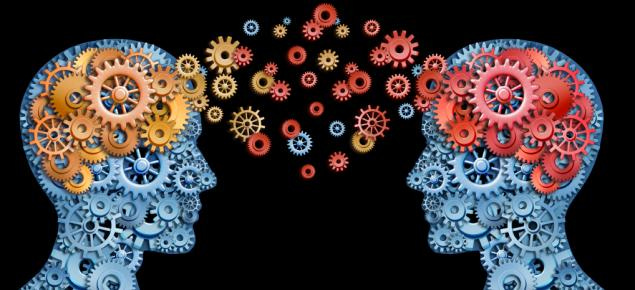Mental Health Awareness Week

By: Megan Grossi
Salem State University is hosting Mental Health Awareness Week from the 27th to the 31st of March. There will be a variety of events promoting mental health lined up for students and faculty, from Glow Paddle Yoga to Suicide Prevention Training; the full schedule can be found on the university’s website. With winter finally officially behind us, hopefully the longer days and warmer weather provide a positive change within us all.
Percentages of affected men and women within a year say a lot about the severity of mental illness. And while the numbers themselves are staggering, I don’t think that they necessarily say why mental health awareness is so important. Yes, it’s hard to read that “half of all chronic mental illness begins by age 14” and that “each day an estimated 18-22 veterans die by suicide.” The numbers speak volumes, don’t get me wrong, but they only tell half the story. The other half of not treating a mental illness or succumbing to suicide is the day to day life that that individual has to face. The story that the numbers don’t tell you is the way mental illness digs into the one’s suffering. The haunting stigma behind mental health as a disease is fading but it’s still very real for most people.
Living with a mental health disorder is a scary thing. You never know when it will rear its head, or to what extreme. Ups and downs become regular; holding onto the tiniest bit of relief, in the smile of a stranger or a good song, is taxing; having no explanation for people of why you’re so torn inside is constant; the line between anxiety over the current situation and anxiety for its own sake becomes blurred. I myself can only speak on behalf of certain illnesses. I don’t know what it’s like to look in the mirror and see an overweight body, when in reality I’m withering away. I don’t know what it’s like to not be able to focus the same way everybody else can because I’m wired differently. I don’t know what it’s like to compulsively pluck out every strand of hair on my body. But I do know what it’s like to have to wear a jacket in the summer sun to hide cuts, and to be afraid of everybody to the point of paranoia because one person took advantage of me. I know what it’s like to chalk up whatever’s wrong with me some days to depression and anxiety. I know what it’s like to fear that aforementioned stigma and refuse help, to the point of hospitalization. Everyone may experience pain but not everyone experiences a disorder.
I know how hard the lack of mental health can make life. However, the hardest part of mental illness isn’t living with it, but fixing it. If you take away the first part of that phrase you’re left with “illness,” and in the end that’s all it is – an illness. Mental illness is an ailment. It’s not like having the sniffles, where you’re inconvenienced for a couple days, but then shake it off; it’s more like breaking a bone or contracting a virus. Mental illness is a real medical issue that needs to be remedied, and if left untreated only gets worse. That’s an angle that for a long time people didn’t want to see, myself among them. I told myself to suck it up and get over whatever it was that was hurting me, but I would never take that approach if I broke my leg! For those suffering without support, the only thing they can do is to just ignore the symptoms to the best of their ability.
Once you’re willing to accept medical help, though, you open up a whole new can of worms. The brain isn’t a broken bone, it’s not obvious what is wrong and what it needs, and so treating mental illness can start as a guessing game. The first medication I tried made me manic and sent me to the hospital; I remember forgetting it one morning and feeling fine – happy even – but after going back to take it having a severe anxiety attack shortly after. The second medication, luckily, worked and is the one that still helps me get through the day three years later, but the right mixture isn’t always found so quickly. Friends of mine have taken months of experimenting with their psychiatrists, having medication for their anxiety affect the meds that they take for ADHD. People who don’t deal with mental illness themselves (whether directly or indirectly through a friend or family member) can’t understand the experience of the problem the same way we do. There’s nothing wrong with that, it can’t be helped, but that barrier can’t be expressed in statistics and numbers. That barrier is why my psychology professor, whose brother was schizophrenic, was so effective in her teaching. That barrier is why we need to be talking about mental health.
I truly applaud Salem State for not only dedicating the time to acknowledge the severity of mental health for a full week, but for also providing resources for students. I hope to see students utilize campus resources and partake in the upcoming events. In addition, I really hope to see students and faculty from all demographics participate in discussions. For those who are not suffering personally but know people who are, or who simply want to be informed, don’t be shy to learn more about what your peers are going through. The more you know, the more you can help as either a personal acquaintance or a bystander. The best thing that Mental Health Awareness Week can do is keep these issues at the forefront of the conversation on campus.


